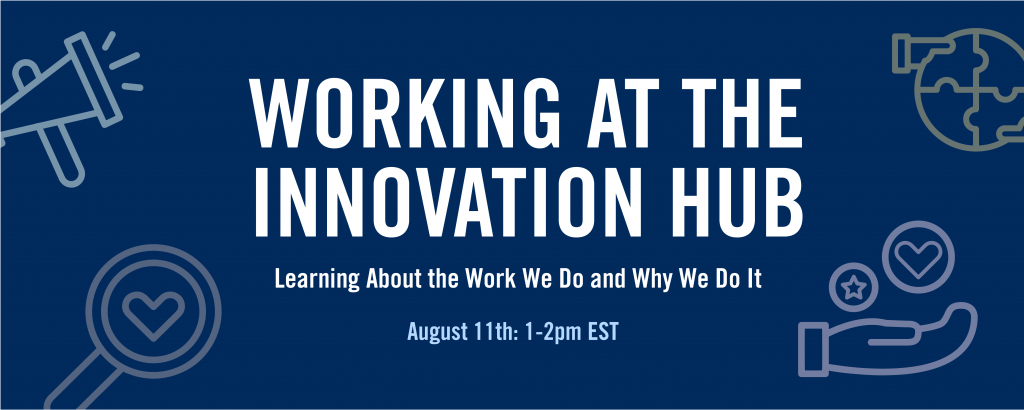The Importance of Fostering Connectedness
Innovation & Compassion: The Importance of Design Thinking

Written by Carla Alexander, Content Writer
Students often face complex challenges. When it comes to topics like mental health, success in the classroom, food insecurity, we may stop ourselves and think: how can these issues ever truly be understood? After all, many universities have been in business for centuries, and these issues are still as prevalent amongst their students as they were decades ago. However, there is a way to approach these ‘wicked’ problems, no matter how difficult they may seem: design thinking.

Design thinking forms the foundation of our work at the Innovation Hub. Our methodology involves a “human-centred” approach to student issues — but what does that mean, exactly? What is design thinking, and how can it be used to solve the hard-hitting issues that students face?
Interested in Working with us? Join us at ‘Working at the Innovation Hub’!
Are you curious about what we do at the Innovation Hub? Are you thinking of applying to any of our roles for the Fall Winter 2021-22 Work Study term, or know of someone who might want to apply?

On August 11th from 1-2pm EST (via Zoom), join us at ‘Working at the Innovation Hub’, a virtual event where we share what we do and why. Learn more about Design Thinking, our projects, and insights from our team! We will also share the variety of opportunities available for the Fall Winter Work Study Term, and what elements are important to consider in the application process.
Community Event: Crushing Impostor Phenomenon in Graduate School
We would like to share this wonderful community event with our graduate student communities at UofT! ‘Crushing Impostor Phenomenon in Science’ is an initiative aimed towards minimizing patterns of Imposter Phenomenon, through a set of seminars and workshops for graduate students in the Faculty of Medicine at the University of Toronto. If you are interested, or know of individuals who would be interested in joining this community, continue reading!
Do you experience feelings of isolation and imposter phenomenon in graduate school? If you’re unsure, you can take this test to find out: http://impostortest.nickol.as/. Most graduate students do, but not many talk about it.
We are inviting you to join the conversation by – “Crushing Imposter Phenomenon in Science”!
Commuting and COVID-19: Moving Into The Future
Revisiting the Domains of Innovation

Written by Carla Alexander, Content Writer
So much has changed within the past year — not only within the world, or the university, but within the Innovation Hub as well. As the Innovation Hub progressed throughout the pandemic, our projects have highlighted new and continuing issues students navigate, such as flourishing in online classrooms or maintaining connectiveness online. With this context in mind it’s important to begin thinking about the tools that guide, frame, and inspire our work, including the most important one of all: the Domains of Innovation.
Cyberbullying and Mental Health: CAMH is looking for participants!

At the Innovation Hub, we see and experience how incredibly important student mental health is in our communities. In this community repost, we would like to highlight an important study by one of our community partners, the Centre for Addiction and Mental Health (CAMH), and how you or a peer could participate in an important study this summer!
Mental Health Research Opportunity – Detection and Intervention of Cyberbullying on Social Media
Are you a social media user? Do you have thoughts and concerns about cyberbullying? Are you looking to get involved?
We are doing a study to better understand the needs and preferences of youth (ages 16-21) around cyberbullying on social media platforms. Our team is looking to engage with youth who are interested in collaborating with researchers to generate insights that will aid in the development of a digital tool to help prevent cyberbullying.
Community Repost: Reviewing Your Families’ Academic Year – Will it be Back to Virtual School for Yourself and Your Kids?
All about the TIL Operations Working Group

Written by Georgia Maxwell – Senior Research Assistant for Transforming the Instructional Landscape
Transforming the Instructional Landscape (TIL) is an ongoing project at the University of Toronto that examines how learning environments can be improved for both instructors and students. TIL employs design thinking to help build better learning environments with students rather than for students. A wide range of professionals from across UofT are also involved in the project’s exciting and innovative work.